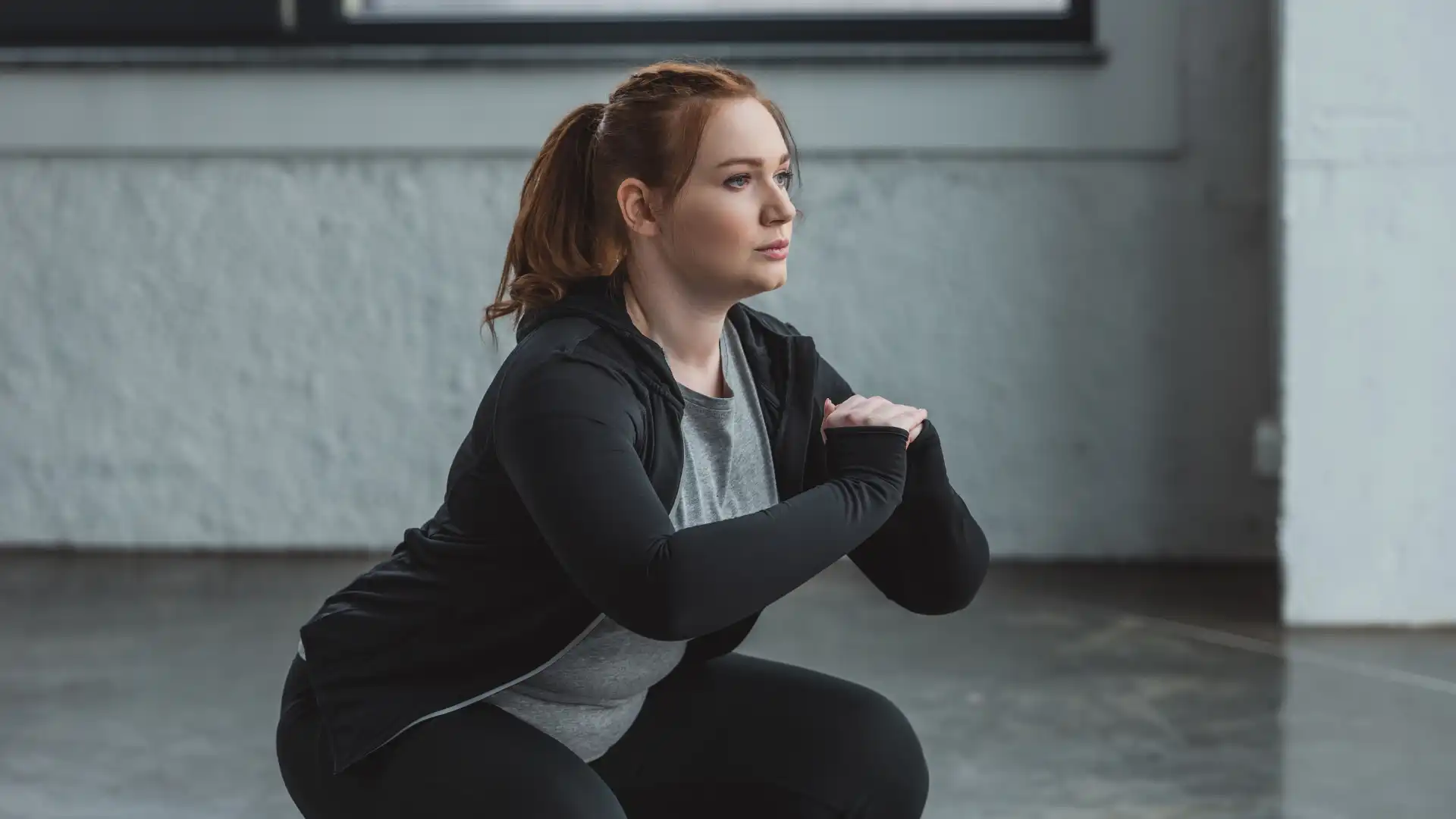The Yoga Bod: Can Yoga Practice Positively Influence Body Image?

The philosophical aspects of yoga teach us to shift away from self-judgment of our bodies and minds. Yet yoga in the West has become a multibillion-dollar industry that is represented by thin, toned models whose physique may be unattainable to many body types. This article examines the negative and positive consequences of practicing yoga on body image.
How Does the “Yoga Bod” Harm?
Although asana (physical practice) is but one limb of Patanjali’s Eight Limbs of Yoga, it is the main element that has gained the attention of the media in the U.S. A 2017 study published in the journal Body Image examined the physical appearance of 142 female models and the media frames of 567 captions on the covers of three leading mainstream yoga lifestyle magazines between 2012-2015 (1). The authors of this research found that the majority of models were white, posing in clothing with high body visibility, and representative of “thin-and-lean” fitness standards. Authors also found that these characteristics were most visible in magazine titles that endorsed exercise and fitness in association with yoga. 
Another study by Neumark-Sztainer et al. published in Body Image in 2018 presented evidence that yoga can be harmful to body image when participants compare themselves to images from the media or others in the room (2). In this qualitative study, the authors interviewed 46 young adults who practiced yoga regularly on their perceptions of yoga’s impact on body image.
Participants perceived yoga to have a negative influence on their body image when they compared themselves to others or when they experienced negative self-talk during yoga classes. The study found that heavier-set participants were more likely than thin participants to report comparing themselves to others while practicing yoga.
Gratitude for All Bodies 
Despite the issues with body image discussed by the participants of the study of Neumark-Sztainer et al., the authors suggest that the positive impacts of yoga on body image outweigh the potentially harmful impacts. Among the participants in their study who described experiencing negative effects of yoga on body image, all but one participant said that there were also positive impacts of the practice on body image.
Participants reported yoga to have a positive impact on body image by improving their feelings of gratitude for their bodies, improving self-confidence, experiencing a sense of accomplishment within their yoga practice, perceiving physical changes to occur in their bodies, and witnessing various body types practicing yoga.
 Furthermore, a study by Ariel-Donges et al. published in the journal Sex Roles in 2018 provides evidence that supports yoga’s role in improving body image (3). This study evaluated the efficacy of yoga as an intervention to decrease body image dissatisfaction among U.S. college-age women. The researchers randomly assigned the 75 participants of this study to practice yoga twice weekly for 12 weeks or to be waitlisted for practicing yoga.
Furthermore, a study by Ariel-Donges et al. published in the journal Sex Roles in 2018 provides evidence that supports yoga’s role in improving body image (3). This study evaluated the efficacy of yoga as an intervention to decrease body image dissatisfaction among U.S. college-age women. The researchers randomly assigned the 75 participants of this study to practice yoga twice weekly for 12 weeks or to be waitlisted for practicing yoga.
Results showed that the women who had been assigned to practice yoga reported improvements in their evaluation of their body after 12 weeks of practice, and they reported spending significantly less time and energy being preoccupied with their appearance compared to the group that did not practice yoga.
Encouraging Diversity in Yoga 
These two studies show promise for yoga’s role in improving negative self-attitude about one’s physical appearance. However, the context in which yoga is practiced is important to consider. Neumark-Sztainer et al. stress that studios and yoga teachers create environments that feel inclusive to participants of a range of shapes and sizes to enhance the positive impacts of yoga.
For example, yoga teachers can encourage participants to be grateful for their physical capabilities rather than emphasize the attainment of a particular posture or physical appearance as the end goal of the practice.
Moreover, yoga teachers can encourage students to focus on their personal physical and mental experience rather than look around at other students in the room. Finally, all who are affiliated with the yoga industry can make explicit efforts to include a diverse range of races, ethnicities, classes, ages, genders, sexual orientations, and body shapes and sizes into the practice.
Individuals who are dissatisfied with their body image are at a higher risk for eating disorders, depression, and low self-esteem. When diversity and inclusivity are encouraged, yoga may have an important role to play in supporting healthy feelings toward body image.
 Lacey Gibson is a Boston-based freelance food writer, a global health research consultant, an RYT-200 yoga teacher, and a certified barre teacher. She graduated in 2015 with a BA/BS in French and Physiology from Southern Illinois University, where she also competed as an NCAA DI track/cross country runner. Additionally, she holds a Masters of Science in Global Health and Population from Harvard T.H. Chan School of Public Health. As a writer, Lacey specializes in mindful consumption of chocolate, coffee, and wine. Her work has been published in the Journal of Wine Research, Gastronomica, Fresh Cup, Elephant Journal, Happy Cow, and DOYOUYOGA, YogaUOnline, among others. Lacey’s mission as a writer and as a yoga teacher is to inspire openness, compassion, and connection through mindful movement, living, and eating.
Lacey Gibson is a Boston-based freelance food writer, a global health research consultant, an RYT-200 yoga teacher, and a certified barre teacher. She graduated in 2015 with a BA/BS in French and Physiology from Southern Illinois University, where she also competed as an NCAA DI track/cross country runner. Additionally, she holds a Masters of Science in Global Health and Population from Harvard T.H. Chan School of Public Health. As a writer, Lacey specializes in mindful consumption of chocolate, coffee, and wine. Her work has been published in the Journal of Wine Research, Gastronomica, Fresh Cup, Elephant Journal, Happy Cow, and DOYOUYOGA, YogaUOnline, among others. Lacey’s mission as a writer and as a yoga teacher is to inspire openness, compassion, and connection through mindful movement, living, and eating.
Website: laceygibson.com Instagram: instagram.com/laceygibson
References
(1) Webb, J.B., Vinoski, E.R., Warren-Findlow, J., et al. “Is the ‘Yoga Bod’ the new skinny?: A comparative content analysis of mainstream yoga lifestyle magazine covers.” Body Image. (2017) 20: 87-98. DOI: 10.1016/j.bodyim.2016.11.005
(2) Neumark-Sztainer, D., Watts, A.W., and Rydell S. “Yoga and body image: How do young adults practicing yoga describe its impact on their body image?” Body Image. (2018) 27: 156-168. DOI: 10.1016/j.bodyim.2018.09.001.
(3) Ariel-Donges, A.H., Gordon, E.L., Bauman, V. et al. “Does Yoga Help College-Aged Women with Body-Image Dissatisfaction Feel Better About Their Bodies?” Sex Roles (2019) 80: 41. DOI: 10.1007/s11199-018-0917-5



